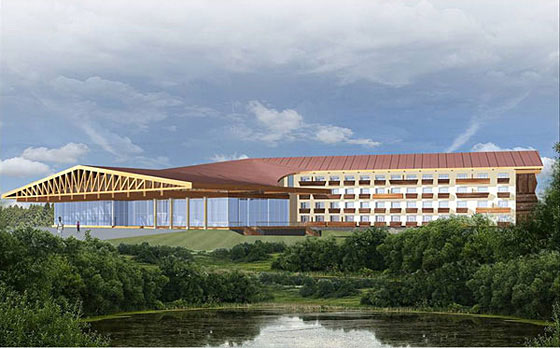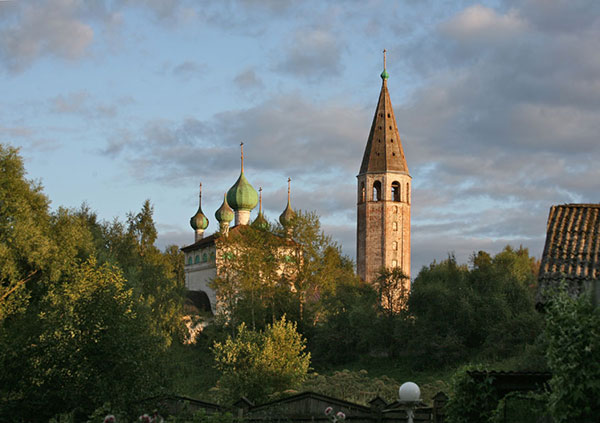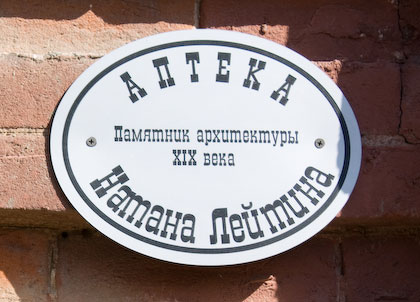
Why Traveling to Russia?
/ Главная / Russkiy Mir Foundation / Publications / Why Traveling to Russia?Why Traveling to Russia?

Why should a foreigner travel to Russia? You cannot help thinking about it every time you leave the precincts of the capital city and drive by poor villages, plough lands that have turned into wastelands over bad roads with litter scattered over the roadsides. Why indeed? Moscow, Saint Petersburg, Gold Ring, Volga cruises are traditional destinations established back in Soviet times. Nothing new has appeared and even in the “traditional” places everything is not so smooth: few quality hotels, almost no entertainments while monuments as “the main asset” are far from being in a perfect condition. Substandard living conditions in many Russian cities and towns make the general picture even grimmer. This does not hassle domestic tourists who have got used to traveling and hotel extremes and their number keeps growing year after year. On the contrary, the tourist inflow from far-abroad countries, probably generated in times of Gorbachev on the crest of interest in Russia, is on the wane.
Tourism should not be treated as something optional and secondary. This is a full-fledged economic sector, experts assert, having significant albeit unutilized potential in Russia. For comparison, in 2010 the share of tourism in Russia’s GDP amounted to 5%, whereas in France it was as high as 6%. Russia welcomed 2 million tourists against 80 million who travelled to France last year. Tourism is part of the very economic diversification we’ve been talking about for several decades with no visible changes.
Nevertheless everything is not so hopeless. For example, summer 2012 will see the opening of the first phase of the large holiday property Gold Ring, 10 km away from Pereyaslavl-Zalessky. This project of the eponymous company boasts an attractive architectural solution authored by Totan Kuzembaev – the admirer of eco friendly forms perfectly fit into landscape. Most important, this is part of the tourist infrastructure targeting both foreign and domestic tourists as well as the MICE tourism. It is such landmark projects that should considerably improve the situation in the Russian tourist industry.

“We plan to accommodate the tourists traveling over the Gold Ring and provide them with all essential information. A lot of interesting events are held in our cities and some of them do not have just local significance. The problem is that nobody knows about them, however. Take the City Day in Pereyaslavl, for example, or the aeronautics festival. We are going to accumulate this information and offer it to our clients,” says Igor Nurmukhamedov, director of the Gold Ring project.
This is indeed a large-scale project, even by Russian standards – the Gold Ring will be able to accommodate almost 4,000 tourists at one time. Not in vain was the project included in the target national program The Development of Domestic and Inbound Tourism till 2016. This can be a tangible breakthrough for Pereyaslavl-Zalessky itself, meaning new jobs, a new sales market for local souvenirs and potential tourists who can stay one or two days longer in the city instead of traveling further for the lack of a decent hotel. This is how the local authorities should struggle for the tourist: every extra day or hour spent in the city means additional proceeds to the local budget.
On the example of the Gold Ring project we may talk both about typically Russian achievements and drawbacks. Why was the Yaroslavl rather than Vladimir region chosen for that particular project? The answer is simple: it was easier to come to terms with the Yarolsval regional administration. Local governor Sergey Vakhrukov who makes a great contribution to the tourist industry was the key figure behind this choice. But this means that it’s not so easy to come to terms with other public officials from this 100-percent tourist region of the Gold Ring. Many other things are also problematic in Russia. One example is getting connected to the engineering infrastructure. For now we can only dream of the practice common to developed tourist nations, where the government hands over to a private equity investor a thoroughly prepared plot of land with all requisite service lines for further development. Hence the high risks run by developers who are forced to start literally from scratch in a green field (which must first be found and purchased). For this reason they are mainly building VIP hotels in Russia, charging respective accommodation prices.
Now a few words about positive aspects: notwithstanding the problems with tourist infrastructure, service quality and security, domestic tourism keeps growing in Russia and in some regions it is booming. Mayor of Pereyaslavl-Zalessky Andrei Okhapkin assures that people are ready and willing to learn something new about their small homeland, and any Russian city boasts a lot of heretofore unknown history chapters.

And this is not all: some villages in Russia boast even richer history than cities in terms of their age, intriguing history and tourist attraction. Perhaps the most amazing example is the village of Vyatskoe with its 1,000 dwellers and more than 500 years of history, located within only 30-40 minutes of driving from Yaroslavl. The first mention about this village dates from 1502 and it is also covered in great detail in the prerevolutionary encyclopedia of Brockhaus and Efron. Now Vyatskoe has its own web-site. Already in XIX century the village was rather wealthy with two Orthodox churches going back to XVIII century, two alms-houses, a prayer house of clergy fighters, about 100 stone houses, paved streets. The wealth of Vyatskoe can be traced back to the associations of roofers who successfully operated in Saint Petersburg. Famous roofer Petr Telushkin alone climbed the steeple of Peter and Paul Cathedral in St. Petersburg without scaffolding to mend the cross and the Angel figure. Another source of wealth was famous Vyatka cucumbers.
Vyatskoe today is a real tourist center, albeit of local importance. Churches, monuments, old stone houses, Museum of Russian Entrepreneurship plus a large hotel and a decent restaurant decorated in the style of merchant homes of the 19th century.
Restoration of this village is the result of a private initiative. The restoration of Vyatskoe that lay in ruins like many other Russian villages in the Nonblack Soil Zone was initiated and driven by Yaroslavl-based businessman Oleg Zharov who also invested his capital in this project. Having bought a house in Vyatskoe five years ago, he moved here and was fascinated by the village’s background and culture. What Mr Zharov is doing in Vyatskoe (and he does many things) can only partly be qualified as patronage of arts. Besides creating museums and hospitality business, investors buy out local merchants’ estates, normally in a deplorable state, restore and decorate them in the Russian style and sell. This is a many-sided investment project called to attract Russian and foreign tourists to these places, keep up the interest in the Russian village, and revive local traditions and crafts. The initiative of Mr Zharov and his colleagues is a good example of how one can profit by the national history and culture with out destroying anything, but rather creating a new point of attraction for tourists almost out of nothing.
The Russian tourist industry needs both approaches – large infrastructural projects like the Gold Ring and relatively small projects like Vyatskoe, which are nevertheless deeply rooted in the Russian history and traditions and therefore particularly interesting to all kind of tourists. Creativity combined with investments – what else can one dream about? Perhaps only about larger investments and more favor on the part of local authorities, which is especially important in Russia.
Boris Serov
New publications

 Mikhail Kalatozov, a director who transformed the world of cinematography in many ways, was born 120 years ago. He was a Soviet film official and a propagandist. Above all, he was capable of producing movies that struck viewers with their power and poetic language.
Mikhail Kalatozov, a director who transformed the world of cinematography in many ways, was born 120 years ago. He was a Soviet film official and a propagandist. Above all, he was capable of producing movies that struck viewers with their power and poetic language.  Ukrainian authorities have launched a persecution campaign against the canonical Ukrainian Orthodox Church (UOC), the biggest one in the country's modern history. Over the past year, state sanctions were imposed on clergy representatives, searches were conducted in churches, clergymen were arrested, criminal cases were initiated, the activity of the UOC was banned in various regions of the country, and monasteries and churches were seized.
Ukrainian authorities have launched a persecution campaign against the canonical Ukrainian Orthodox Church (UOC), the biggest one in the country's modern history. Over the past year, state sanctions were imposed on clergy representatives, searches were conducted in churches, clergymen were arrested, criminal cases were initiated, the activity of the UOC was banned in various regions of the country, and monasteries and churches were seized.  When Nektary Kotlyaroff, a fourth-generation Russian Australian and founder of the Russian Orthodox Choir in Sydney, first visited Russia, the first person he spoke to was a cab driver at the airport. Having heard that Nektariy's ancestors left Russia more than 100 years ago, the driver was astonished, "How come you haven't forgotten the Russian language?" Nektary Kotlyaroff repeated his answer in an interview with the Russkiy Mir. His affinity to the Orthodox Church (many of his ancestors and relatives were priests) and the traditions of a large Russian family brought from Russia helped him to preserve the Russian language.
When Nektary Kotlyaroff, a fourth-generation Russian Australian and founder of the Russian Orthodox Choir in Sydney, first visited Russia, the first person he spoke to was a cab driver at the airport. Having heard that Nektariy's ancestors left Russia more than 100 years ago, the driver was astonished, "How come you haven't forgotten the Russian language?" Nektary Kotlyaroff repeated his answer in an interview with the Russkiy Mir. His affinity to the Orthodox Church (many of his ancestors and relatives were priests) and the traditions of a large Russian family brought from Russia helped him to preserve the Russian language.

 The leaders of the Friends of the Great Russia cultural association (Amici Della Grande Russia) in Italy believe that the Western policy of abolishing Russian culture in Europe has finally failed. Furthermore, it was doomed to failure from the beginning.
The leaders of the Friends of the Great Russia cultural association (Amici Della Grande Russia) in Italy believe that the Western policy of abolishing Russian culture in Europe has finally failed. Furthermore, it was doomed to failure from the beginning.  Name of Vladimir Nemirovich-Danchenko is inscribed in the history of Russian theater along with Konstantin Stanislavski, the other founding father of the Moscow Art Theater. Nevertheless, Mr. Nemirovich-Danchenko was a renowned writer, playwright, and theater teacher even before their famous meeting in the Slavic Bazaar restaurant. Furthermore, it was Mr. Nemirovich-Danchenko who came up with the idea of establishing a new "people's" theater believing that the theater could become a "department of public education."
Name of Vladimir Nemirovich-Danchenko is inscribed in the history of Russian theater along with Konstantin Stanislavski, the other founding father of the Moscow Art Theater. Nevertheless, Mr. Nemirovich-Danchenko was a renowned writer, playwright, and theater teacher even before their famous meeting in the Slavic Bazaar restaurant. Furthermore, it was Mr. Nemirovich-Danchenko who came up with the idea of establishing a new "people's" theater believing that the theater could become a "department of public education."  "Russia is a thing of which the intellect cannot conceive..." by Fyodor Tyutchev are famous among Russians at least. December marks the 220th anniversary of the poet's birth. Yet, he never considered poetry to be his life's mission and was preoccupied with matters of a global scale. Mr.Tyutchev fought his war focusing on relations between Russia and the West, the origins of mutual misunderstanding, and the origins of Russophobia. When you read his works today, it feels as though he saw things coming in a crystal ball...
"Russia is a thing of which the intellect cannot conceive..." by Fyodor Tyutchev are famous among Russians at least. December marks the 220th anniversary of the poet's birth. Yet, he never considered poetry to be his life's mission and was preoccupied with matters of a global scale. Mr.Tyutchev fought his war focusing on relations between Russia and the West, the origins of mutual misunderstanding, and the origins of Russophobia. When you read his works today, it feels as though he saw things coming in a crystal ball...